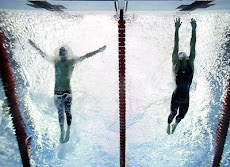Creatine is a compound naturally produced in the liver, kidneys and pancreas from amino acids (simple proteins) and can also be obtained in foods such as meat and fish (especially raw, eg. sushi) and to a lesser extent eggs and soya products. Almost all creatine in the body is stored in skeletal muscle, transported there via the blood, and is used in energy production and muscle contractions.
Creatine is utilised in muscle tissue (in the form of creatine phosphate - CP) to reform the high-energy/energy storing compound ATP, particularly during short-term, high intensity movements and activity. Over time, CP stores in the muscles are used up and one becomes unable to maintain high intensities in, for example, sprinting or lifting weights. Supplementing with creatine therefore helps to delay this fatigue.
It has also been shown to increase strength and body weight gains, as well as improve recovery after workouts/training. Increase in body weight is due to higher levels of protein synthesis/formation (muscle mass) but also increased movement and storage of water in muscle tissue. (Looking and feeling slightly bigger just as creatine intake starts is not therefore miraculous growth, but probably just this increase in water storage in the muscle cells)
Most studies into the side-effects of supplementing with creatine have been unable to come upon any notable adverse effects, even after relatively long-term ingestion. This being said, it most be noted there are no completed long term (>5years) studies. Mild digestive system disturbances, such as mild diarrhoea or cramps, have been reported occasionally during the initial loading phase of creatine supplementation.
Increased fluid intake is often recommended, as increased water in the muscle tissue means less to other parts of the body, such as the heart and brain. Creatine is frequently recommended to be taken or mixed with simple sugary foods or fruit juices, as absorption out of the digestive system into the bloodstream is enhanced in the presence of sugars.
Note: Creatine has possible negative interactions with NSAID’s (non-steroidal anti-inflammatory drugs), caffeine, diuretics and some gout treatments.
Remember, your doctor knows best.
Jed
Monday, February 22, 2010
Subscribe to:
Post Comments (Atom)




















hey jed
ReplyDeleteso u saying that creatine is,on the whole, a good substance to be taking? concerns that come to mind are things like still developing athletes in their youth, or the fact that the kidneys may have to now work a little harder to clean out the body etc...
basically i have heard so many pro's and con's to this substance that leaves me very hesitant to even consider using this substance. would there not be a better, perhaps slower, but confirmed safer supplement to take that can achieve all of creatines purposes?
Hi there,
ReplyDeleteIn terms of younger athletes and creatine supplementation, there are definitely extra considerations. Limited research, a need for focusing on technique, general fitness, recreation vs high performance, something new vs proper understanding of the product and its effects, puberty, parental understanding and involvement, etc.
Here's a link to a great review of these concepts, including some important guidelines and even a little on how supplementing with creatine could reduce steroid use... :
http://www.dotfit.com/sites/63/templates/categories/images/1292/Creatine_Supplementation_and_Youth.pdf
In terms of kidney damage, it is possible but highly unlikely. If you are adequately hydrating (which should be recommended by the manufacturer/on the product label) and have a healthy, balanced diet, your kidneys will function normally. One of the markers of kidney damage is a compound called creatinine, which will be raised in the blood and urine while taking creatine, not because of damage but because it is broken down from the (elevated) creatine phosphate in muscle tissue. Creatine might be linked with kidney damage only if there was some underlying or undiagnosed kidney disorder or the like.
ReplyDeleteBeing hesitant to supplement with creatine is understandable with all the info floating around out there. Other alternatives, well, it is quite a specific supplement with specific effects. In terms of increasing muscle mass, supplementing with some form of protein (eg. whey, amino acids mixtures) should be your first thought. Creatine is best used when combining increases in muscle mass, explosive power and sport performance. I would recommend a period of training without supplementing with creatine and then once you're comfortable with your training program, nutrition and health, give it a go.
ReplyDeleteJed